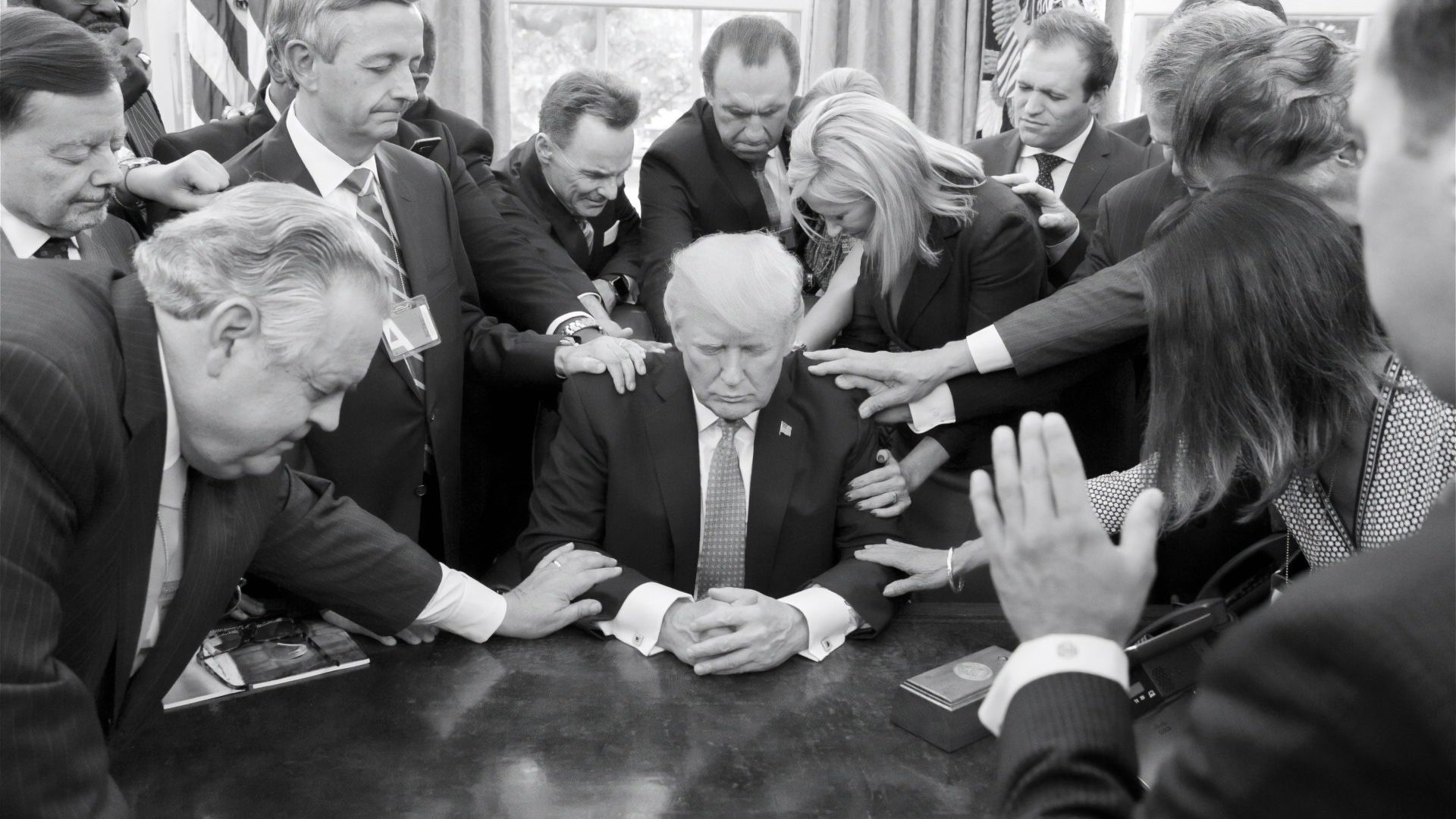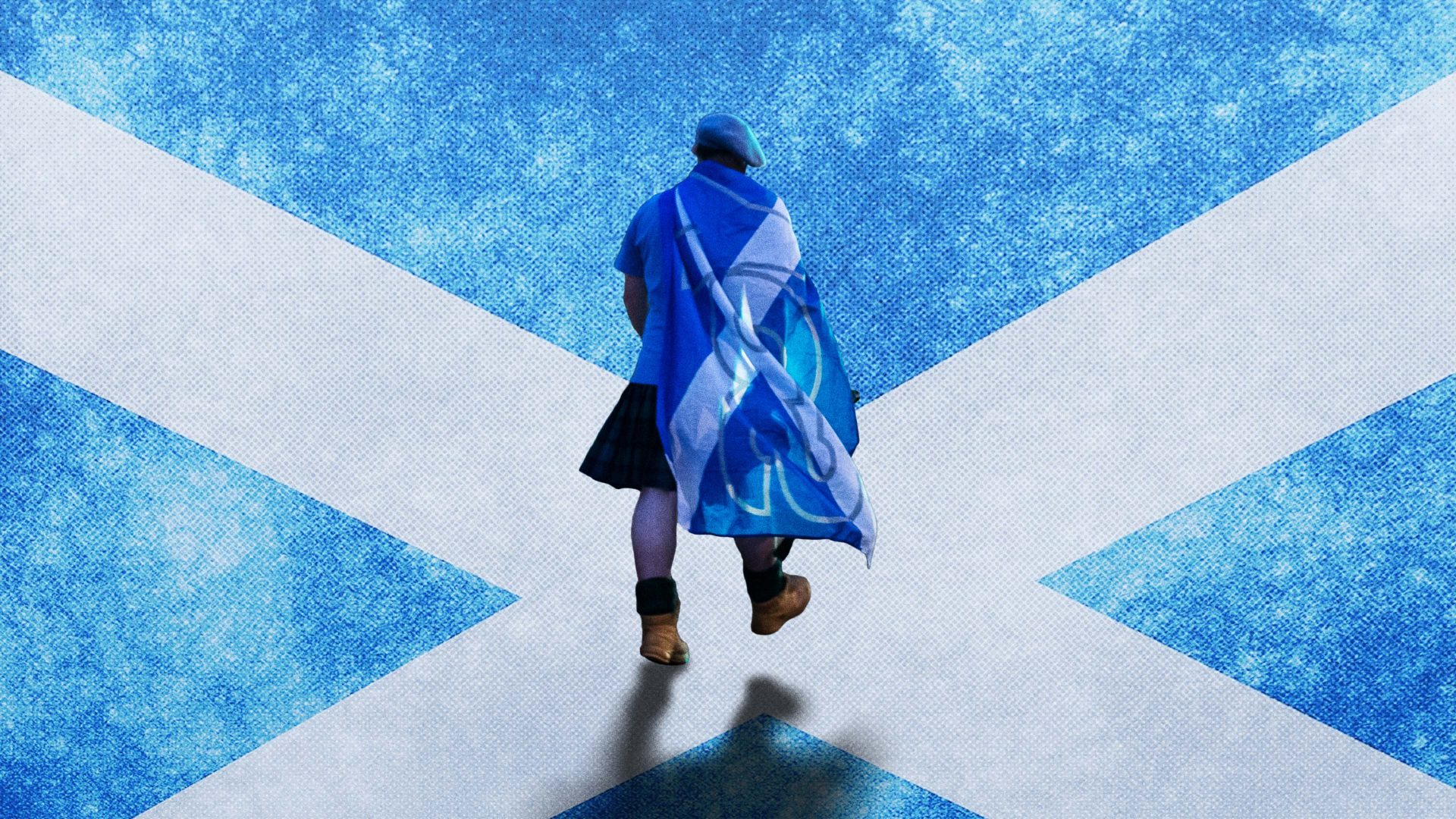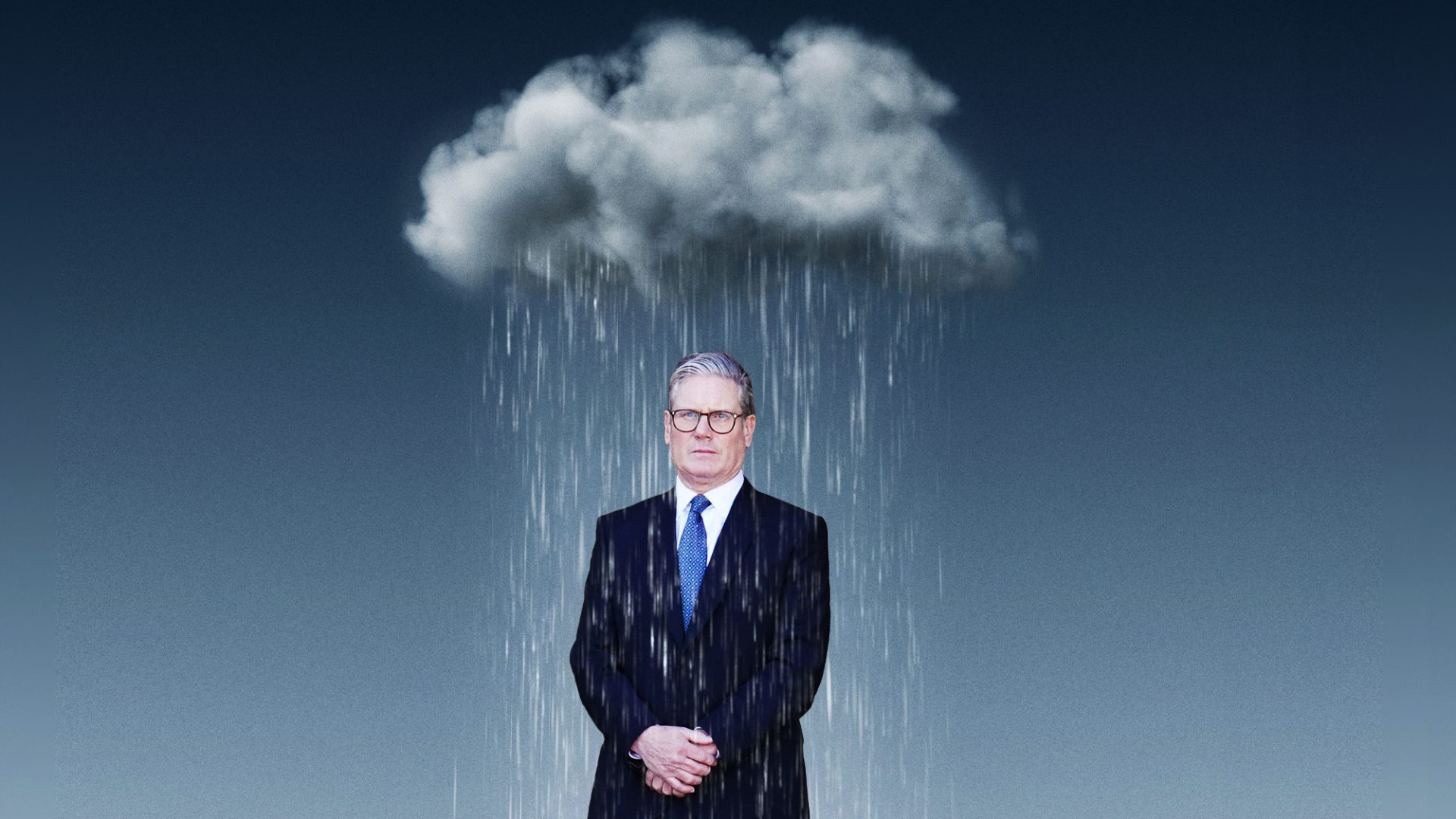In his interview with the television psychologist Dr Phil McGraw in Las Vegas last Tuesday, Donald Trump sounded like a man in the full grip of religious delusion – and so he may well be. But there was also method and purpose to what he said.
Asked why he thought he had not been killed by the assassin’s bullets on July 13, the Republican presidential nominee replied: “I mean, the only thing I can think is that God loves our country. And he thinks we’re going to bring our country back… It has to be God.”
To understand why Trump made this claim to divine protection – more explicitly so than he has to date – one has to remember the centrality of religion to US politics. About 24% of Americans identify as evangelical or born-again, and they have long seen Trump as a flawed crusader for righteousness – comparable to Cyrus the pagan king, who liberated the Jews from Babylonian captivity. It is to this constituency that his “God whistles” are directed.
In two hugely important ways, he has already rewarded their support: first, by appointing three conservatives to the US Supreme Court, which went on to overturn Roe v Wade in June 2022, ending a woman’s automatic constitutional right to an abortion.
Second, he recognised Jerusalem as the capital of Israel in December 2017 – a sacred measure in the eyes of fundamentalist Christians who regard the city as pivotal to Biblical prophecy, the return of Jesus Christ, and the unfolding of the End Times.
With only two months to go before polling day, Trump badly needs to reaffirm his alliance with these voters. The devolution of abortion law to individual states has satisfied nobody, raising the salience of the issue to Kamala Harris’s potential benefit and disappointing pro-life Christians who had hoped for a federal ban.
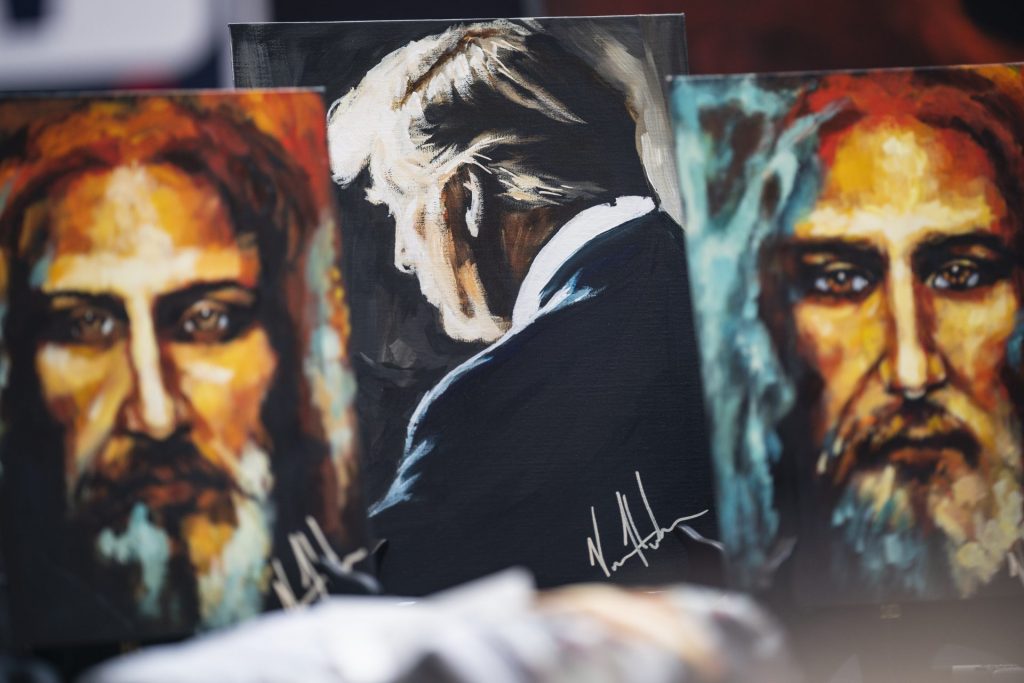
After some equivocation, Trump announced last week that he would vote against a ballot measure in his home state of Florida intended to protect abortion rights.
Because the race is still a toss-up – Harris’s success at the Democratic National Convention last month has not translated into a sustained poll lead outside the margin of error – Trump cannot afford to squander a single evangelical vote.
For a variety of reasons, not least the belief of many that politics is a poisonous distraction from the Lord’s work, American Christians are categorised as “low propensity” voters.
This is why the Republican candidate implored his audience at the Believers’ Summit hosted by Turning Point America in West Palm Beach, Florida, in July, to make the journey to the polling station in this, of all elections.
“Christians get out and vote. Just this time,” he urged. “You won’t have to do it any more. Four more years. You know what? It’ll be fixed. It’ll be fine. You won’t have to vote any more, my beautiful Christians.”
This was widely understood as a tyrannical promise that, if he wins, there will be no more presidential elections: given his record, a legitimate interpretation. His principal message, however, was that Christians cannot afford to stay at home if they want to prevent the supposedly Satanic duo of Harris and Tim Walz leading the country to sacrilege and perdition.
There is also a deeper and more sinister side to what Trump said in his interview with Dr Phil. Quite overtly, he was declaring himself to be God’s candidate in this race – a divine status that, in the eyes of his Christian followers, transcends the statistical outcome of the election itself.
To understand why this is so, it is essential to remember that there is a theistic version of America, established by the Pilgrim Fathers, that long pre-dates the Declaration of Independence in 1776 and the ratification of the US Constitution in 1788. According to this notion of Christian exceptionalism, scripture trumps constitutional law, church and state should not be separate, and modern secularism is inherently un-American.
In recent years, this concept of America has become increasingly associated with political violence; a subject grippingly explored in Elizabeth Neumann’s book, Kingdom of Rage. Neumann’s warning that Christian nationalism now represents an existential threat to US democracy is all the more compelling because she is herself a devout believer and was a senior official in the Department of Homeland Security during Trump’s presidency.
According to a mega-survey of 9,000 respondents by academics at University of California, Davis in 2022, 3% of Americans – about 8 million people – believe that “political violence is usually or always justified”; in which context, she notes the growing “co-dependency between nationalism and evangelicalism”. Religious fundamentalism, hatred of the deep state, opposition to Covid measures, conspiracy theories such as QAnon, and ethnonationalism have converged to make America, in Neumann’s phrase, “a parched tinderbox”.
It is no accident that Trump launched his official campaign in March 2023 in Waco: sacred ground for apocalyptic Christians, who revere the memory of David Koresh, the deranged cult leader whose compound was raided by federal agents in 1993.
It is no accident that, amid the Black Lives Matter protests following the murder of George Floyd on May 25, 2020, the then president deployed tear gas and riot police to clear a path to St John’s Episcopal Church in Lafayette Square, Washington, where he held up a Bible.
This was the signal to white Christian America: I am on your side. They call me a fool, but I am a holy fool. They condemn my chaos, but it is sacred chaos.
Now, he is preparing for the possibility of defeat, in the knowledge that a new infrastructure of militias has been established and is waiting to be mobilised.
More than 1,400 individuals have already been charged with federal crimes related to the January 6 uprising. But from the ashes of that terrible day, a second wave of Christian paramilitary groups is rising.
In the past three years, the Patriot Front, Proud Boys, American Patriots Three Percent militia, and newer, fascistic “Active Clubs” have all resumed (or begun) systematic recruitment. They have targeted veterans’ associations and, most alarmingly, gained traction in local law enforcement agencies.
A network of pro-Trump “constitutional sheriffs” is growing steadily. Historians of authoritarian regimes will recognise this pattern immediately.
In battleground states, notably Georgia, Trump’s supporters are already menacing the electoral officials whose task it will be to initiate the certification of the result that should culminate in congressional approval on January 6, 2025.
The MAGA movement has done little to conceal its readiness to engage in illegality, harassment or outright violence to ensure that Trump returns to the White House. At a rally at Johnstown in Pennsylvania last Friday, his attorney, Alina Habba, vowed to get “my hands dirty” in pursuit of that overarching objective.
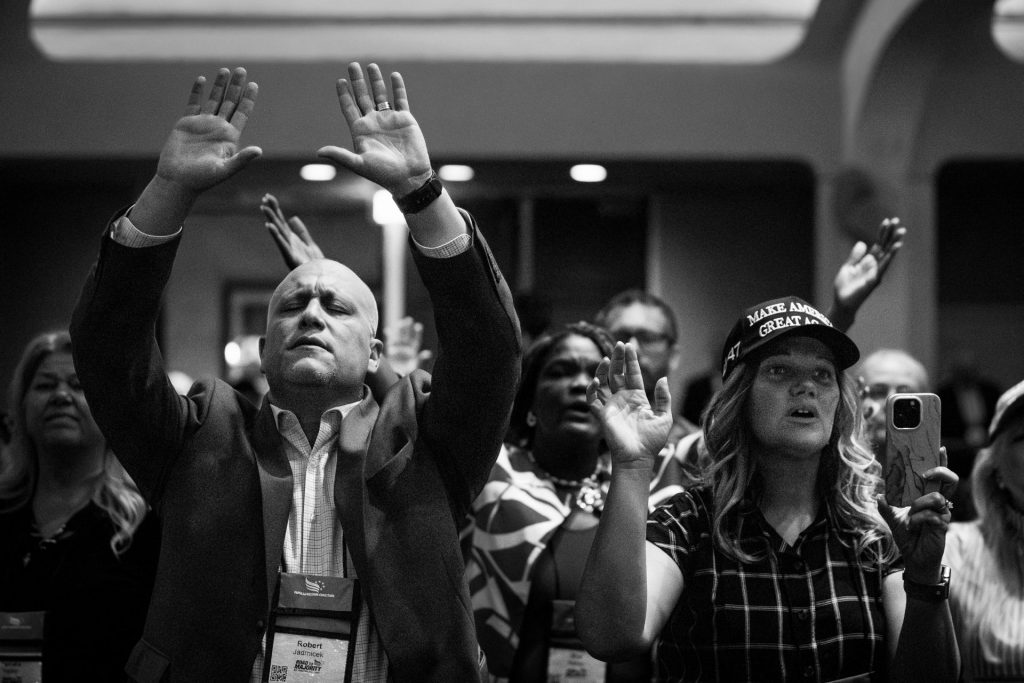
And – after all – why would his militarised flock hide its intentions? The nominee himself has conspicuously refused to rule out the use of force if the outcome in November does not favour him.
“I think we’re going to win,” he told Time magazine in April. “And if we don’t win, you know, it depends. It always depends on the fairness of an election”.
These, don’t forget, are the words of a man still under federal indictment for election subversion. His meaning is all too clear.
To Dr Phil, he put it slightly differently. “If Jesus Christ came down and was the vote counter, I would win California, OK?” Trump said. “[I]f we had an honest vote counter, I would win California.”
No Republican presidential nominee has won the Golden State since George Bush Sr in 1988, and Trump stands no chance of repeating this feat. But that was not his point.
What he was signalling to his followers was: you can’t trust the electoral officials anywhere, but Jesus wants you to defend me against their impious dishonesty.
Which means that Harris could win comfortably on November 5 and still face civil unrest. True, the Democrats will be in control of the White House this time and Joe Biden, president until January 20, will not hesitate to deploy the national guard and federal agencies as Trump did so wickedly four years ago.
Yet the potential consequences of his defeat remain a known unknown. Trump is more desperate than he was in 2021, animated by a fear of prison as well as a lust for power.
The Christian militias are better organised than they were four years ago. They believe that they, no less than their orange idol, have a divine mandate of much higher origin than the ballot box.
None of this is inevitable. Harris could still become the 47th president without serious incident; in which case the free world would heave a heavy sigh of relief. But there are other, darker possibilities, for which Trump and his supporters are actively preparing. How will it all end? God only knows.


